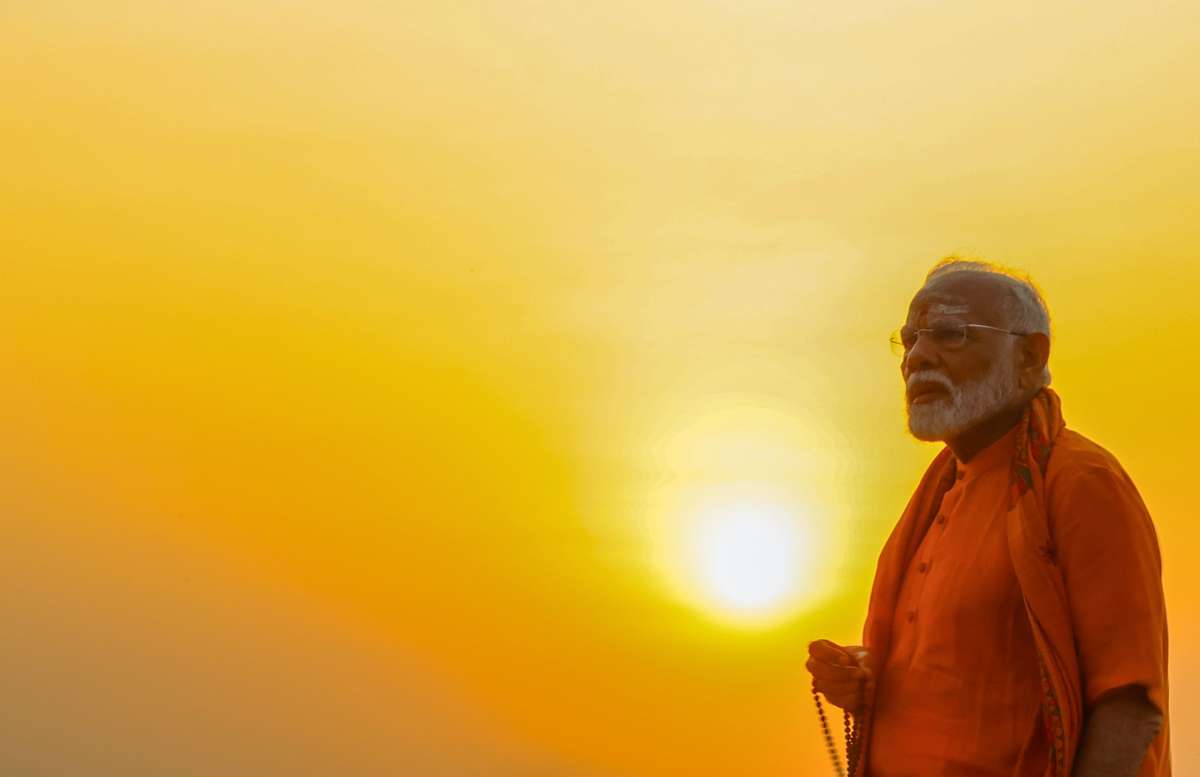BJP’s reduced margin of victory indicates that the party may need to recalibrate its approach, particularly concerning its Hindu nationalist, or “Hindutva” policies, writes Dr Thankom Arun
Narendra Modi may have led his Bharatiya Janata Party (BJP)-led National Democratic Alliance (NDA) to a historic third term, but the landslide victory that many had expected failed to materialise. With half of the 640 million votes counted, Modi’s Bharatiya Janata Party (BJP) and its political allies were on course to win 290 seats. It’s enough to form a coalition government – but is 60 fewer seats than it won in the 2019 election.
Despite being fragmented and perceived as weak on a national level, the Congress Party-led opposition, the Indian National Developmental Inclusive Alliance (or India), managed to gain traction in regional strongholds such as Tamil Nadu, Punjab and Maharastra, creating a more competitive electoral landscape.
In 2019, the BJP secured a majority in its own right. This time it will need to rely on its electoral alliances to maintain power. Nonetheless, Modi’s victory holds significant implications for India’s political landscape and future direction.
The BJP has employed a nuanced strategy over its ten-year tenure in office. It has tried to tailor its agenda to resonate with the diverse priorities and concerns of different regions across India. This approach has involved emphasising specific local issues, cultural narratives and economic needs that vary from one state to another.
In India’s northern states, such as Madhya Pradesh, the BJP has focused on national security and Hindu nationalism. In the south, meanwhile, it has prioritised economic development and infrastructure projects. This approach resonated with voters in the south who were frustrated with the status quo and sought better governance and economic progress.
The BJP won its first ever seat in Kerala in the south-west, traditionally a stronghold for the Congress Party and the Communist Party of India (Marxist). Local movie star, Suresh Gopi, won a big majority in the temple city of Thrissur. He campaigned on development issues, while avoiding any talk of Hindu nationalism, despite this being a theme which has played well for the BJP elsewhere.
Interestingly, religious nationalism did not resonate as strongly with the electorate in general. This was even the case in Uttar Pradesh in the north-east, despite the huge publicity coup afforded Modi in January when he inaugurated a temple to Ram at Ayodhya on the site of a former mosque. The Socialist party and Congress alliance won 42 of 80 seats, five more than the BJP. This is a blow for the BJP, and particularly for Yogi Adityanath, the state’s chief minister, a strong contender as Modi’s successor.
This reduced margin of victory indicates that the BJP may need to recalibrate its approach, particularly concerning its Hindu nationalist, or “Hindutva” policies. While religious nationalism has been a powerful tool in mobilising support during the BJP’s first two terms, the recent election results suggest that it might not always be sufficient to secure widespread victories.
But, as you’d expect in such a massive and populous country, there have been other factors at play. Extensive welfare measures introduced by the Modi government have significantly bolstered his support.
But despite the resilience and buoyancy of the Indian economy under Modi’s leadership, challenges remain. Stagnation in the manufacturing sector and the government’s poor performance on job creation have cast shadows over Modi’s growth narrative. While digital advancements and welfare initiatives have been successful, addressing these economic concerns is crucial for sustaining long-term growth and stability.
Diversity is strength
The strength of India’s democracy lies in its vibrant political discourse and the celebrated concept of the “argumentative Indian”. This culture of debate and dissent is vital for a healthy democracy, as it ensures that multiple voices and perspectives are heard and considered.
Instances such as the BJP government’s delayed response to the farmers’ protests underscore the importance of addressing public grievances and adapting policies based on feedback. The government’s eventual willingness to engage in dialogue and retract controversial agricultural laws demonstrated a responsiveness that can strengthen democracy by showing a commitment to listening and adjusting to the populace’s concerns.
Many people, meanwhile, expressed discomfort with the Modi government’s extreme positions on privacy and diverse beliefs. For instance, watering down the Information (RTI) Act of 2005, which was intended as a powerful tool for exposing corruption and ensuring good governance. India has fallen 11 places in the World Press Freedom Index to 161 out of 180 countries as freedom of expression has come under strain.
The BJP must now ensure that its third term does not lead to the marginalisation of minority voices or the erosion of democratic norms. Instead, it should use this period to foster a more inclusive political environment that encourages healthy debate and innovation.
Meanwhile, despite being formed relatively recently, in July 2023, the opposition India coalition put on an impressive performance. The coalition must now develop a sustained and coherent platform that resonates with a broader population segment.
By promoting a political landscape that values diverse perspectives and robust debate, India can continue to build a dynamic and inclusive democracy. This balance is essential for addressing the nation’s complex challenges and ensuring that democratic principles are upheld for future generations.

Leave a Reply